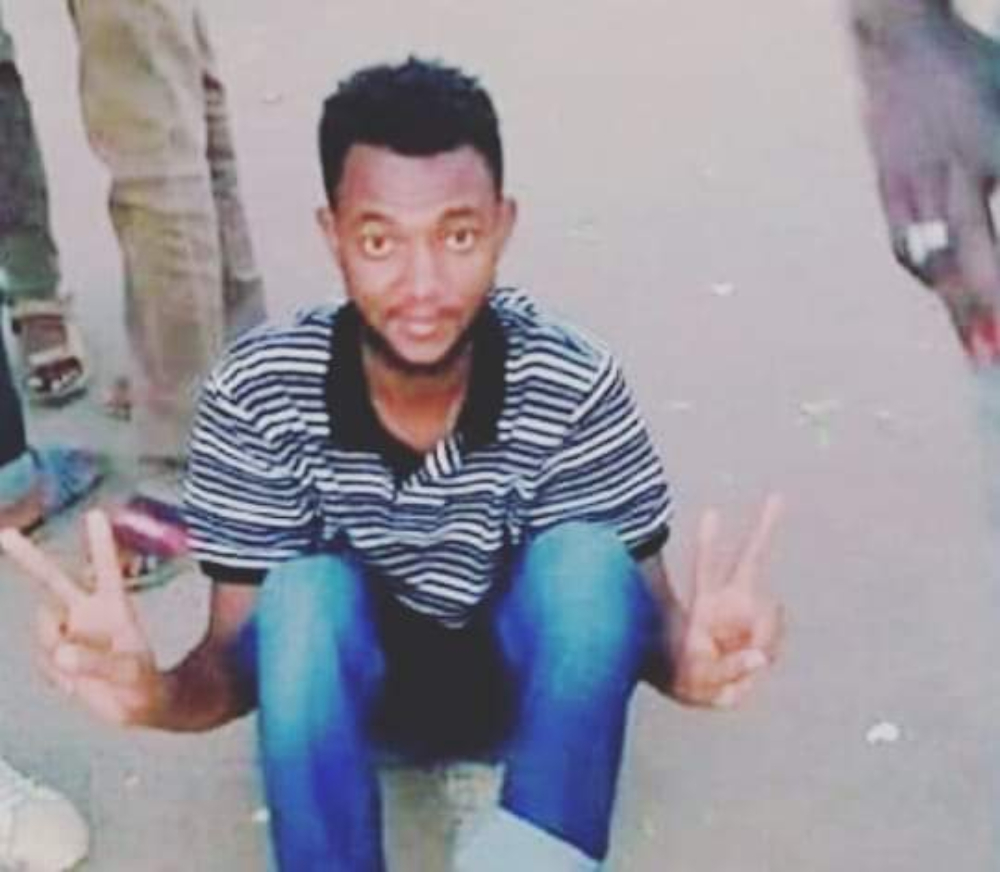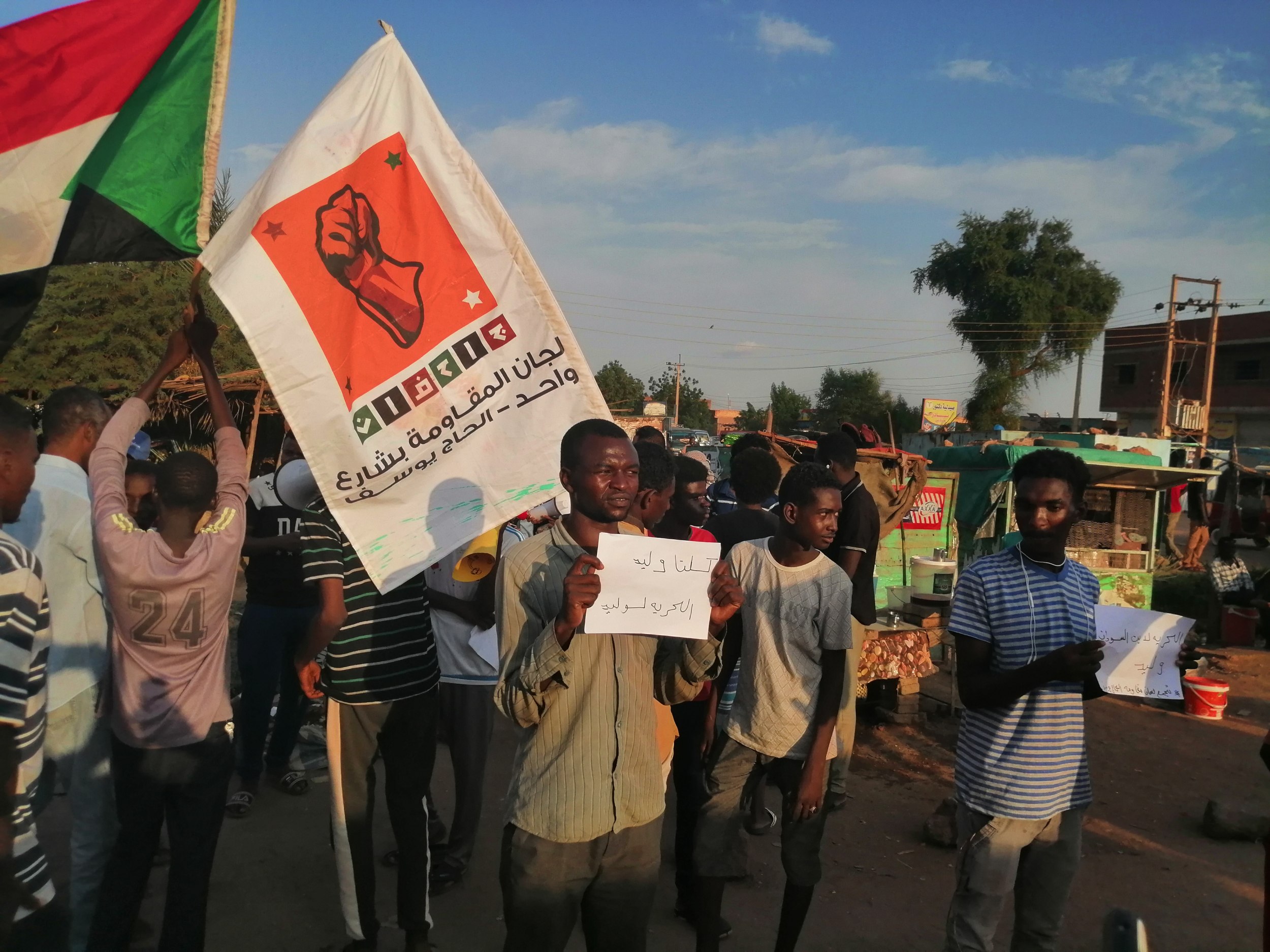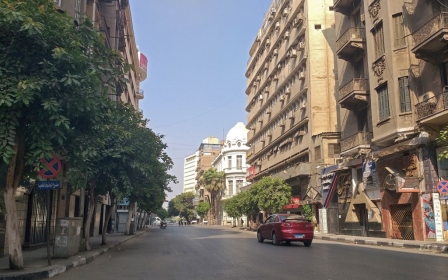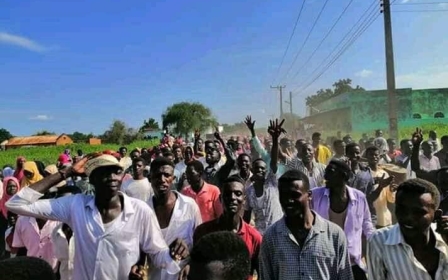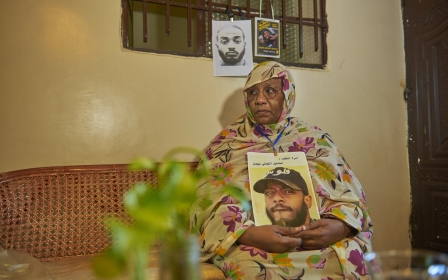Detention of Sudanese student in Cairo ignites protests in Sudan
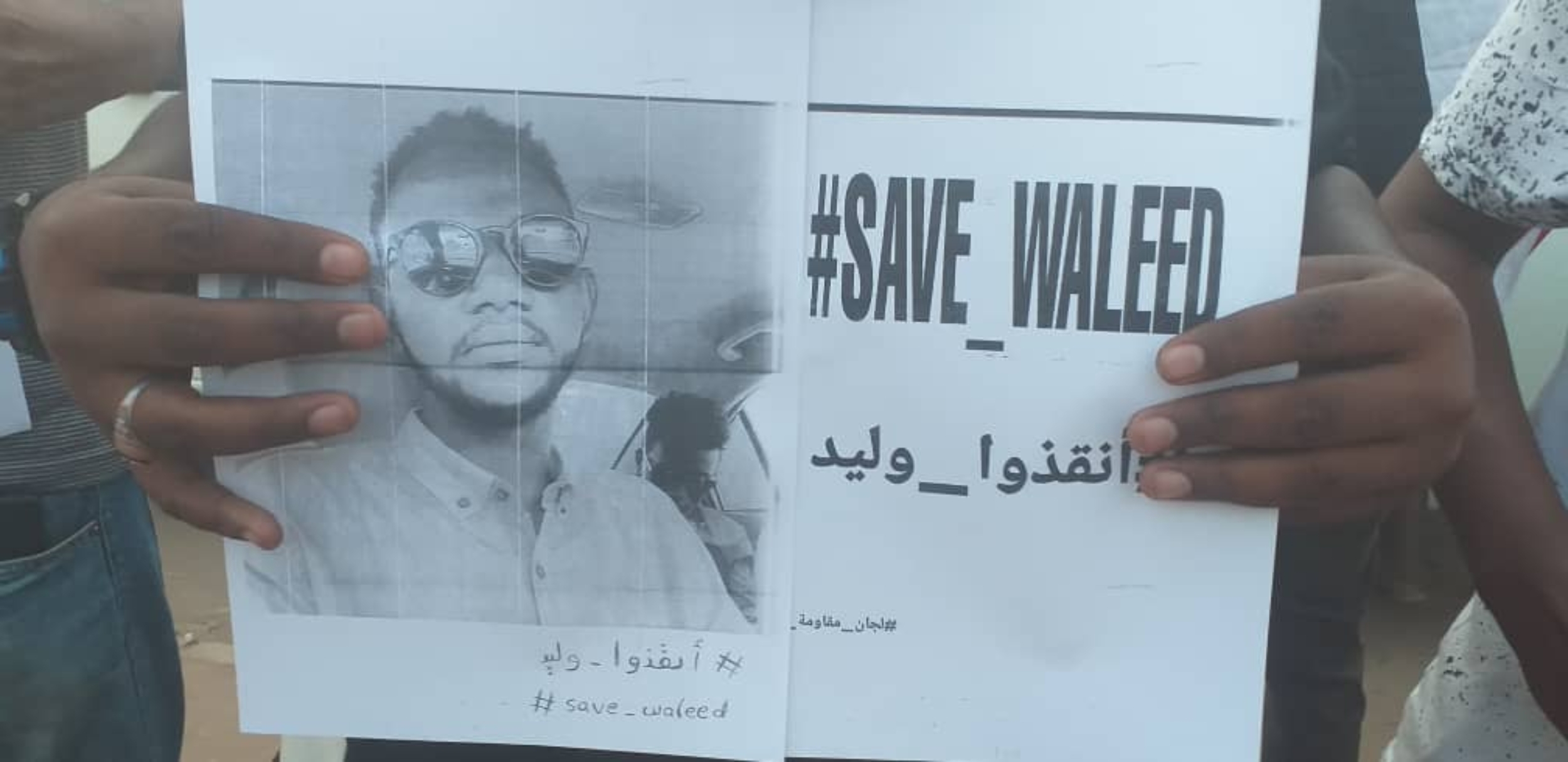
News of the arrest of a young Sudanese man in Egypt, accused of participating in recent protests against Egyptian President Abdel Fattah el-Sisi, ignited demonstrations in the Sudanese capital Khartoum earlier this week.
Walid Abdulrahman Hassan was one of more than 2,000 people detained by Egyptian security forces in the past week, and like many others, he stands accused of participating in protests in Cairo’s Tahrir Square against Sisi’s rule.
Hassan is being accused of participating in a conspiracy against the Egyptian constitutional system - a charge that can carry the death penalty under the law, and which Egyptian activists argue is being used to draw attention away from the legitimate grievances of the protest movement.
Demonstrations first began on 20 September, sparked by whistleblower Mohamed Ali’s allegations of high-level corruption and misspending of state funds, while many Egyptians suffer from poverty under stringent austerity measures.
Sudanese pro-democracy protesters have staged protests in residential areas of Khartoum, while the family of Hassan submitted a petition to the Sudanese Ministry of Foreign Affairs calling for it to intervene to free the 22-year-old man.
New MEE newsletter: Jerusalem Dispatch
Sign up to get the latest insights and analysis on Israel-Palestine, alongside Turkey Unpacked and other MEE newsletters
While Sudanese activists have coalesced in support of Hassan, analysts ponder how recent developments in Egypt, now witnessing the first significant mass protest movement since Sisi came to power in 2013, may have been influenced by Sudan’s own ouster of longtime autocrat Omar al-Bashir earlier this year.
Shock and defiance
Speaking to Middle East Eye, Hassan’s family said they were torn between sadness and defiance, as they remain determined to bring him back, as well as hold Egyptian authorities responsible for any harm that might befall him while in custody.
On Wednesday, Egyptian channel MBC Masr aired a segment in which prominent Egyptian TV presenter Amr Adib publicly revealed the identity of a number of foreigners arrested in the past week, and played several videos in which these individuals, including Hassan, confessed on camera to being involved in the organisation of the protests.
“I can’t sleep or eat since I saw that video,” Hassan’s mother, Khadiga Abu al-Zaki, told MEE. “It’s more than painful to see my only son being accused of such serious crimes when I know that he is innocent.
“This video is staged, and the Egyptian presenter is lying,” she added. “I know my son well, he made these confessions either under torture or threat.”
According to Hassan’s uncle, Mahy Aldi Abu al-Zaki, the young accounting student arrived in Egypt for the first time in his life in late August in order to study German at an institute in Cairo, as universities in Sudan have been closed since the uprising began in the country last December.
“I was talking to Walid frequently since he moved to Egypt and he has nothing to do with what is happening in Egypt,” Mahy told MEE. “We were surprised and shocked when we saw him in that video claiming Walid supports the Muslim Brotherhood in Egypt… most of the information now circulated about him in the media are incorrect.”
The Sisi government has tried to dismiss the recent protests in Egypt by blaming them on foreign intervention and the Muslim Brotherhood - the organisation of Mohamed Morsi, the first democratically elected Egyptian president who was ousted in a military coup in 2013.
While emphasising that her son was not involved in events in Egypt, Khadiga said with pride that her son had a history of activism in his own country - noting that he was detained by Sudanese forces in September 2013 and in December 2018 for participating in anti-government demonstrations.
Hassan’s friends and relatives nonetheless vehemently rejected the Egyptian claims that the young Sudanese man was affiliated to the Muslim Brotherhood, pointing to his longstanding opposition to Islamist rule in Sudan under Bashir.
“Walid has made many sacrifices in Sudan’s revolution because he is against the Muslim Brotherhood in Sudan, so how would he supported them in Egypt?" his friend Mohammed Saleh asked. “For someone to accuse him of supporting the Egyptian Muslim Brotherhood its unbelievable.”
'Save Walid'
“Despite the pain and sadness, I am proud of him because he is a brave change-seeker who wants the betterment of his country and struggles for his future and that of democracy,” Khadiga said.
Hassan’s arrest has prompted thousands of Sudanese pro-democracy protesters to organise marches and launch a social media campaign “Save Walid”, calling on Egyptian authorities to free him immediately.
Protests that began on Thursday in some residential areas of Khartoum such as Haj Youssef, Arkaweet Maamora and Burri quickly spread to outside the Egyptian embassy in Khartoum.
The Sudanese Professionals Association (SPA), one of the leading organisations of the Sudanese uprising, has come out to condemn Hassan’s arrest, joining the family’s calls for the Sudanese transitional government to intervene in the case and calling the video of Hassan made public on Egyptian television a “shameful” move that would have consequences.
“We stress here that the era when Sudanese citizens were humiliated inside or outside their country has gone and will never return,” it assured.
Salah vowed that the Sudanese would continue to support his friend Hassan as long as he remained imprisoned.
“We will never stop the marches and protests calling for his immediate release,” he said. “We have told the transitional government: We brought you into this position through our sacrifices, so at the very least protect us, preserve our dignity and bring Walid back without further delay.”
Mutual inspiration
With Hassan’s case stirring up emotions in Sudan, a number of Egyptian activists and analysts have commented on the influence uprisings in both Sudan and Algeria this year may have had on the nascent movement in Egypt.
'The era when Sudanese citizens were humiliated inside or outside their country has gone and will never return'
- Statement by the Sudanese Professionals Association
“Nations are always learning the lessons of liberation from each other,” Egyptian activist Essam Shaaban told MEE.
“Youth in the entire Middle East have been inspired by the social movements in Europe, and now Egyptians are also looking to the liberation movements in their region and how these revolutions have succeeded in the battles for dignity and democracy.”
Shaaban nonetheless highlighted that “there are many other domestic factors in Egypt that will lead to the expansion of protests such as the political and economic crisis in addition to the questions of justice, corruption, et cetera”.
For his part, Egyptian political analyst Khalid Youssef said Egyptians had always been affected by the goings on in neighbouring nations.
“Egyptian youth were strongly affected by the revolution in Tunisia in 2011, and that led to the spread of the Arab Spring. So it’s very probable now that the Sudanese revolution is inspiring the Egyptian youth” he explained.
Efforts by Egyptian authorities to block out information on the uprisings in Sudan and Algeria from reaching ordinary citizens has been interpreted by some as an indication that the Cairo government is well aware of the potential impact such news might have on the Egyptian population.
The influence has seemingly gone both ways, as Sudanese and Algerian protesters have been known to chant slogans vowing not to let their respective militaries derail their movements like in Egypt.
“Egyptian pro-democracy protesters have closely monitored the developments of the revolution in Sudan and they were very keen to send advice to Sudanese revolutionaries not to trust the military and repeat Egypt’s experience,” Youssef said. “This means they gave a lot to the revolutions of Sudan and Algeria.”
Middle East Eye delivers independent and unrivalled coverage and analysis of the Middle East, North Africa and beyond. To learn more about republishing this content and the associated fees, please fill out this form. More about MEE can be found here.


